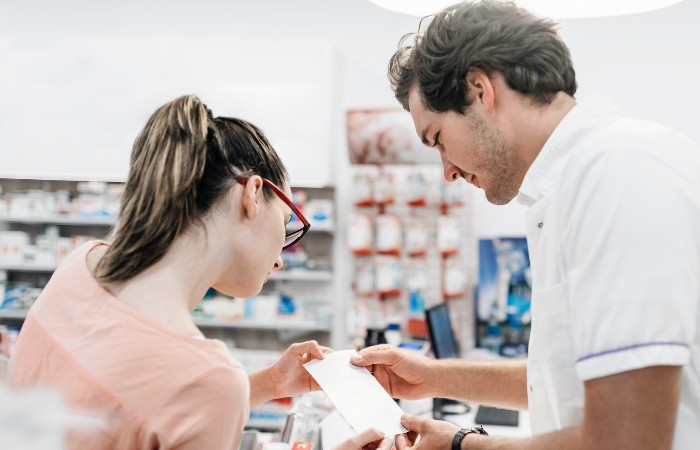One in five patients could not get medicines at a pharmacy, ONS study reveals
In News
Follow this topic
Bookmark
Record learning outcomes
One in five patients in England who responded to a survey about their experiences of NHS services over a 28-day period said they struggled to get a prescription medicine at a pharmacy.
The Office for National Statistics survey, which ran between July 23 and August 15 this year, drew responses from 104,109 people, including 74,171 who said they used a pharmacy during that period.
Eighty per cent said they had no problem getting their medicine but 13.6 per cent said they had to return to the same pharmacy on a different occasion and 3.6 per cent had to visit multiple pharmacies.
RPS: There is clear need to address the root causes of supply issues
The survey also revealed 3.2 per cent had to turn to a different service such as a GP practice or urgent care while 1.8 were unable to access a pharmacy and took no further action.
Of those who had a problem getting their medicine, 13.4 per cent said it was resolved on the same day, 28.5 per cent the next day, 36.1 per cent three to four days later, 8.3 per cent six days or later and 13.6 per cent said it took seven days or longer.
The Royal Pharmaceutical Society said the survey’s findings showed “there is a clear need for systemic change to address the root causes of these supply issues.”
It’s director of England James Davies urged manufacturers, wholesalers and the government “to work together to improve the supply chain.”
“This would enable patients to access their medicines more quickly without needing to return to their GP,” he said.
Survey found 85 per cent of patients satisfied with pharmacy services
The ONS study also found 77.5 per cent of respondents use a pharmacy that is within walking distance. This was true for 80 per cent of females and 74.8 per cent of males.
More people aged 55 and over also used a pharmacy that is within walking distance compared with younger age groups. Online pharmacies tended to be used by 6.6 per cent and 13 per cent said they did not use a specific pharmacy.
Nearly 60 per cent of respondents said they used NHS services in a pharmacy during that 28-day period. That proportion was mostly made up of females, older adults and people with a long-term condition.
Just over 27 per cent said they were most likely to use NHS services at a pharmacy either “very rarely or never,” 26.7 per cent said once a month and 23.4 per cent said every two to three months.
Asian (35.2 per cent) and black (35.7 per cent) ethnic groups were more likely to "very rarely or never" use a pharmacy, compared with white ethnic groups (26.4 per cent).
The dispensing of prescriptions (55.8 per cent) was the most frequently used NHS service in a pharmacy, followed by advice and guidance on minor conditions (5.2 per cent) and a discussion about current medication (2.9 per cent).
That was followed by blood pressure checks (1.6 per cent), Pharmacy First (1.4 per cent), oral contraception services (1.2 per cent), Covid vaccines (0.5 per cent), flu vaccines (0.3 per cent) and other services (6.4 per cent).
The survey found 85 per cent of patients were either “very satisfied” or “satisfied” with the service they received in a pharmacy.
It also revealed white (85.6 per cent) and black (88.3 per cent) ethnic groups were “significantly more satisfied” than Asian ethnic groups (73.7 per cent).

